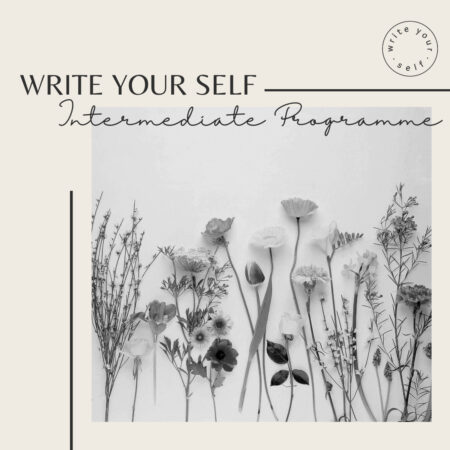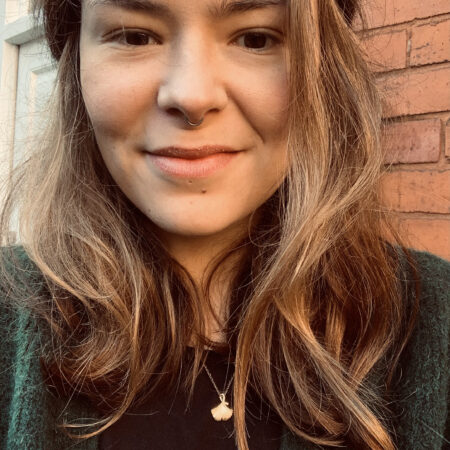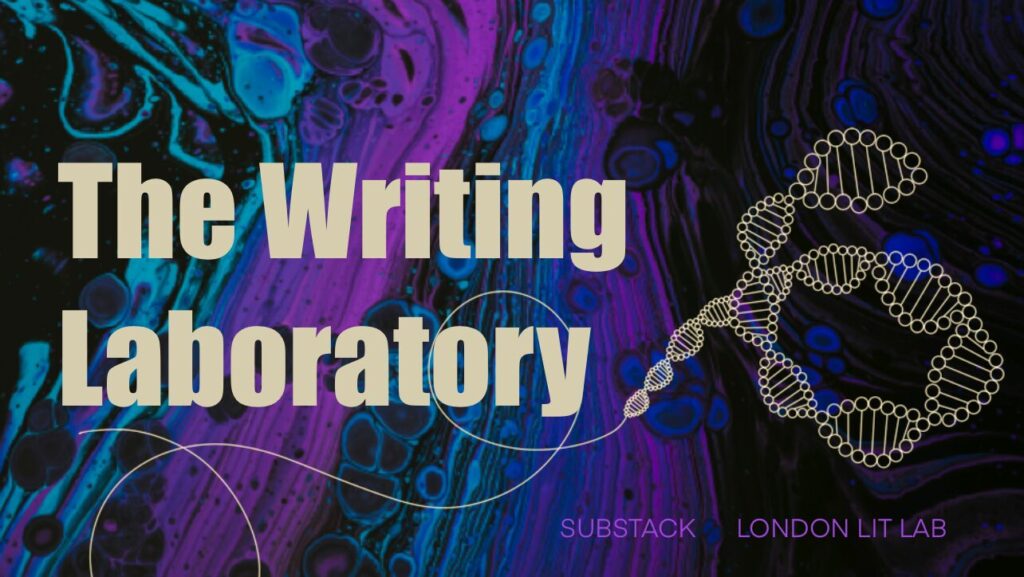Important: To join the Intermediate programme, you will need to have already completed the 8-week Foundation programme. You are welcome to join my waitlist to hear about upcoming course dates and you can find out more about the Foundation programme here on my website.
After a difficult, overwhelming or traumatic experience, we can be left feeling powerless, without voice, language or agency. Research shows that traumatic events can immobilise those regions of the brain which we need to put words to our experiences, and therefore understand them. For those of us with a history of trauma, writing can be a valuable catalyst for healing and recovery. Through writing, we can begin to cultivate linguistic control over the trauma and reorganise our story, in the supportive presence of like-minded peers.
The Intermediate programme builds on the teachings and learnings of the Foundation programme. Its overall aim is to support writers to become more witnessed in their story through specific writing exercises and focussed triad work with 2 other peers in the group which, depending on individual preference, may include text or verbal feedback. It provides a space where writers from previous programmes can reunite, reconnect, and bring chosen aspects of their story into sharper focus, and have those aspects seen and held by others.
Using a trauma-informed writing methodology, the Write Your Self programmes aim to help participants reclaim their voice through writing. They offer a stepped writing process and include key knowledge about trauma, trauma-sensitive writing exercises, as well as other resources to help writers find out what they need to create a sustainable and healing writing practice that serves them long-term.
Both programmes are built upon and incorporate trauma-informed principles at all times – this means that you alone will decide your level of participation. All contributions have value, even if that’s listening and being present for others. Writers will be encouraged to go gently into each exercise, to give themselves permission to proceed at a pace that feels manageable for them (or to pause entirely), at each stage of the process. They will be supported to monitor how they feel and react throughout by using the writing journal as a place to rest and reflect.
Course overview*
Session 1: Scenes and Summaries (6/9/23, 6-8:15pm GMT) In our first session together, we will begin to open a door to our story or chosen subject by looking at its key scenes – these might be moments filled with meaning, milestones or turning points; subtle or seismic shifts or scenes where life seemed to speed up or slow down. When we use this tool, we get to know the curvature of our story and how it moves and travels. Writing summaries is another mechanism that can help us alter the flow of our written stories and punctuate important areas.
Session 2: Descriptions of place (13/9/23, 6-8:15pm GMT) In this session we will explore the significance of place in the story we want to tell. Writers will be supported to think beyond the physicality of place to craft and assemble their descriptions using a multitude of things – for example, the sound of the dialect, the traditions that are observed or the cultures that are practised, or the sensory environment. We will get to know the places that have shaped our stories more intimately.
Session 3: Descriptions of people (20/9/23, 6-8:15pm GMT) This session invites us to consider the people who are associated with the story we want to tell. Here, we are free to hold a looser definition of writing descriptions. Our descriptions can be long and uninterrupted, or simply a word or two; precious fragments of truth rising to the surface as we write. We can collect these descriptions slowly and curiously, as if we were on a beach scanning for treasures and other curios.
Session 4: Research and Timelines (27/9/23, 6-8:15pm GMT) The focus of our fourth and final session will be on research and working with chronology in our writing, to discover how these might aid us further in our storytelling. We will make space to say goodbye to the wider group and, through individual and peer reflection, cement what we we’d like to take with us into our future writing practice.
*Please note that each certified Write Your Self guide will deliver the course differently and will have made their own adaptations. I continue to evolve the structure, format, content and learning materials over time and in line with participant feedback. Each session description is my own interpretation and development of the original methodology I encountered during my training.
Course dates
Wednesday 6th September, 6-8:15pm
Wednesday 13th September, 6-8:15pm
Wednesday 20th September, 6-8:15pm
Wednesday 27th September, 6-8:15pm
This is an online course and will be held on zoom.
What you’ll receive as part of the course fee
- 2+ hours of live learning each week with a group of peers on zoom
- use of a closed messaging platform to stay in touch with your group in between sessions to discuss exercises, share work or to chat about anything else related to the course
- high-quality workbooks that run alongside the live sessions, which can be used digitally or printed out
- regular writing prompts to try out between sessions to deepen your practice and to maintain momentum with your writing
- text or verbal feedback on your writing (if you choose)
- a recommended reading list, as well as links to other useful resources, e.g. articles, videos and podcasts
- a fixed space each week dedicated to your personal and professional development
- access to a writing community that you can stay in touch with (if you choose to) – for example, you might like to come together as a group to write and share your work after the programme has finished
- a sustainable writing practice that you can continue to use in the future to support your wellbeing.
What will I need to take part in this course?
- wherever possible, access to a quiet and confidential space when engaging in the live sessions
- access to a stable internet connection and an appropriate device (mobile phones are not recommended – the learning material might appear very small and you might not be able to see everyone)
- pen and paper!
- willingness to work in smaller groups throughout
- an openness to diverge from traditional methods of providing writing feedback
- as far as possible, consistent attendance and engagement each week to maximise the learning experience for yourself and others
Frequently Asked Questions
Do I have to write about trauma during the course?
Absolutely not. You decide what your writing subjects will be, always. Many participants choose not to write about the trauma they’ve experienced, at least to begin with. It’s different for everyone.
How many places are available?
This programme offers a maximum of 15 places and will run with a minimum of 9. Groups are closed and kept relatively small to ensure a quality learning experience for all participants, where everyone receives adequate space and time to develop their writing practice.
Will I be expected to share my writing with others?
No, there is absolutely no expectation for you to read aloud or share anything about the content of your writing. Sharing writing aloud can be an integral part of the process for some writers, and some may choose to share a little or a lot. The Intermediate programme is structured around and involves triad work (working in groups of 3), and it might be that someone in your group opts to read their work or asks for your feedback. We will also make use of providing content warnings to support this activity.
Is this course considered a treatment for trauma?
This programme is not a substitute or replacement for any type of counselling, psychotherapy, mental health care or clinical trauma treatment. It is, however, intended to work in tandem with those treatments. Though I am a therapist, when I deliver the programme I offer an educational space, not group therapy. Here, our focus is writing. Throughout the programme you are responsible for your own self-care. If you are struggling with your mental health, feeling overwhelmed, or have very recently experienced a traumatic event, please consider seeking professional support before enrolling.
Who is Write Your Self for?
Important: To join the Intermediate programme, you will need to have already completed the 8-week Foundation programme. You are welcome to join my waitlist to hear about upcoming course dates and you can find out more about the Foundation programme here on my website.
In short, it’s for everyone. You do not have to call yourself a writer to join the Foundation programme, the only pre-requisite is that you’re interested in the idea of using creative writing as a therapeutic tool for your own wellbeing. Whilst the programmes were created specifically for trauma survivors, you do not need to describe yourself in this way to take part. We work on the principle that trauma, as an experience, is defined and determined solely by the individual – what might be traumatic for one person may not be for another, and we respect and acknowledge this. The Write Your Self methodology can also support us to write about a broad range of experiences which can leave us feeling silenced – for example grief, serious illness, war, discrimination and bullying.
What people say about Katie
“A very enriching and healing experience.”
“I think the course was true to its description. It was a good integration of theory, experimental learning with an increased level of shared reflection time for members who chose to pursue this. A great deal of emphasis was put on safety and choice and this too was appreciated. We were given lots of support between sessions and a variety of media to explore our writing from. Katie, you were generous, thoughtful, boundaried, clear, consistent and respectful of all our needs. A fantastic communicator and enabler who was inspiring to work with. The writing exercises were varied and related to the theme of each week’s workshop. I felt the format suited Zoom well.”
“I have learnt that I can write. I was very nervous about writing before I did this course. I actually didn’t enjoy it. Now, I am. I’m enjoying watching my writing and myself flourish as I go on.”
“Thank you Katie for a wonderful course. I feel that I am at the start of an exciting adventure through writing! Thanks for holding the space so well for everyone…you are a marvellous and inspiring role model.”
“The content was rich, stimulating and appropriate to our needs. The structure was clear and regular so that we knew what to expect. As a participant, I liked that regularity as it gave me a framework within which I felt safe when I wrote. I found the powerpoint presentations of high quality and a great accompaniment to the course which was delivered online.”
“Really amazing course leading. Thank you.”
“The course was well structured and paced. The flow week to week was amazing – like a scaffolding system where ideas interconnect and support each other. I particularly valued the focus on practice rather than output. I really appreciated the step by step approach, the clear introduction, the workbooks given in advance, and your open, gentle and responsive approach to us all.”
“I found the course overall to be fantastic. The content was dynamic, interesting and thought provoking. I anticipate that I will be using the learning materials for future reference. I found the structure to be accessible and manageable. I thought the format was consistent which was great and I appreciated the variation between taught material, space for us as a group and breakout rooms.”
“I particularly appreciated the discussion of how trauma can impact mind and body and the exercises where we considered the positive factors that contribute to our writing space. These enabled me to understand how trauma had had such a negative impact on my writing practice and health. I have since been able to write in my reflective journal again.”



